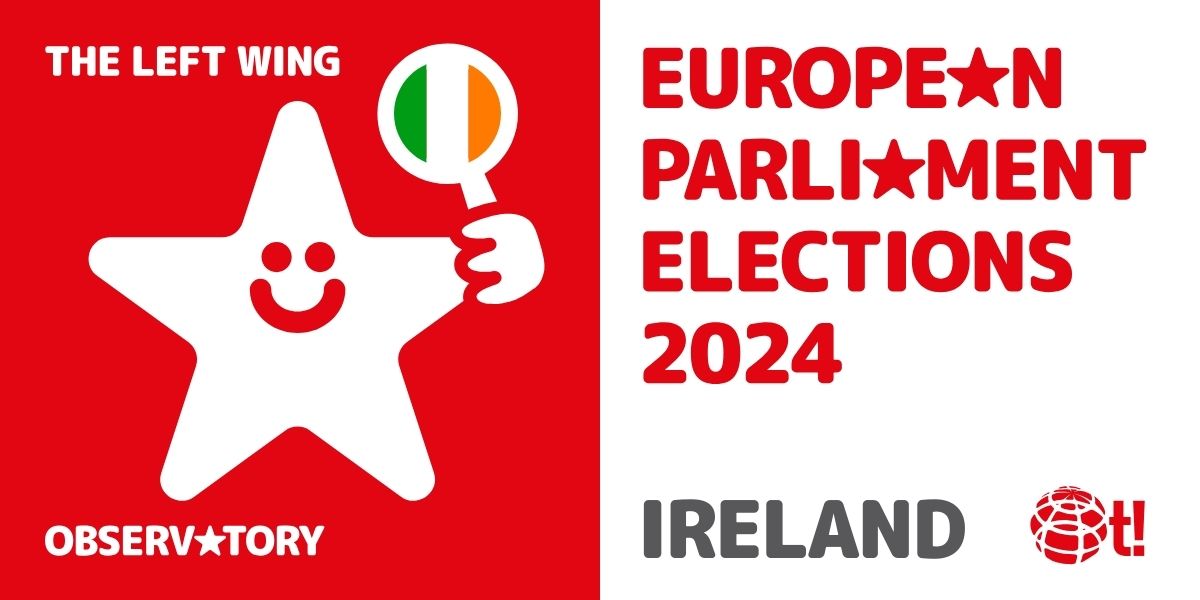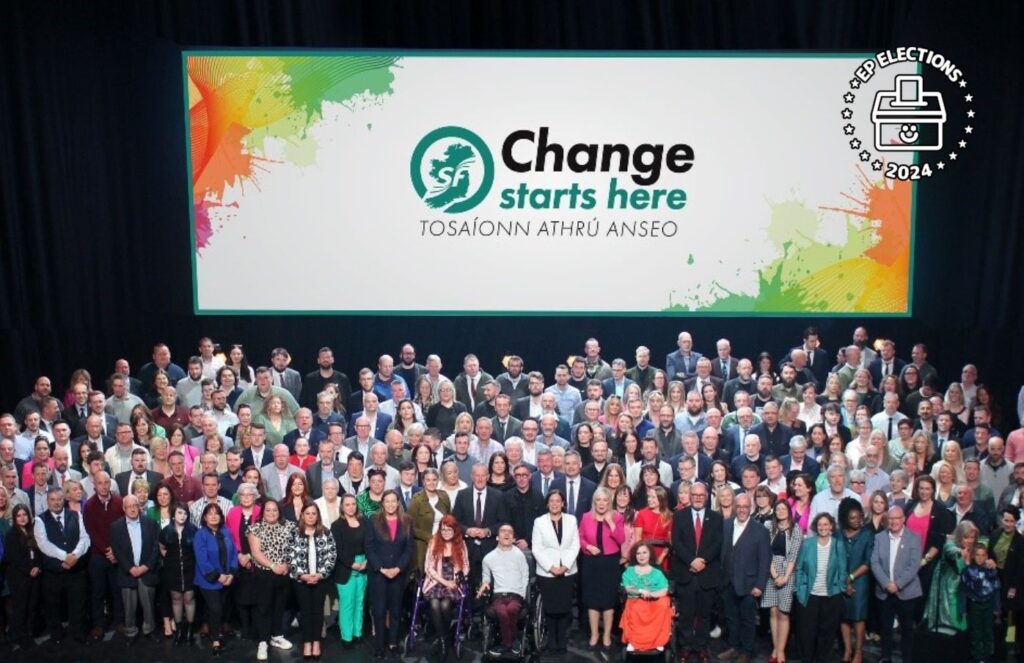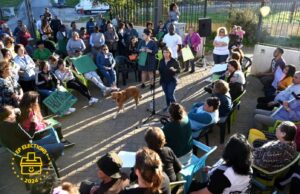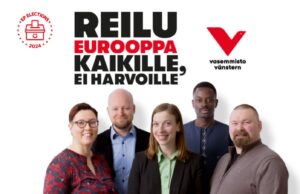
Irish reunification is not inevitable, but it is closer than at any time in history. These European elections are an opportunity to unite in common purpose for equality and hope for the future. National self-determination should be central to our democratic vision for Europe.
By Declan Kearney MLA*, Sinn Féin National Chairperson
We are living in a time of great challenges in Europe and across the globe. The upcoming European Parliament election is an opportunity to collectively champion a vision of a new Europe that protects workers and families, and promotes equality, social justice and democracy. Sinn Féin MEPs will stand up for Ireland in Europe, advocating national democracy and self-determination as key political themes. We will campaign in defence of Irish neutrality and advocate for a democratic, peaceful, and inclusive European Union. All left, progressive and democratic parties must work collectively to protect fundamental rights to build a brighter future. Achieving a new Europe for the many, not the few is our resolve.
As an Irish republican party, Sinn Féin’s fundamental belief is in the sovereignty of the people. We believe in democracy in its fullest sense. That people have the wisdom and capacity to work together as equals without interference of outside forces. Today, the struggle for national self-determination lies at the heart of the two violent conflicts in the world at this present moment. The Russian invasion of Ukraine and the Israeli genocide against the Palestinian people are direct denials of self-determination. The world we live in is dominated by this issue; the national democratic struggle; the aspiration of nations to make their own laws and decide their relations with other nations. As internationalists Sinn Féin stands for the emancipation of humanity from all objectionable political fetters imposed from outside. We stand for the independence of nations, commencing with our own – the Irish nation. A progressive nationalism, not a form of narrow chauvinism. Our Irish republicanism is an expression of our internationalism, which makes us friends with the democrats in every other nation. I believe our experience has a significance today in the broader European context, where national democracy continues to be denied; particularly in countries such as Euskal Herria, Cyprus, and Catalunya. A final resolution to these examples where national democracy continues to be denied will strengthen, not weaken, the ideal of European democracy. The work to do so should be embraced as a pan European priority by all left, progressive, and democratic parties.
In Ireland the struggle for national self-determination and freedom is centuries old. Its roots lie in the English colonisation of our country eight centuries ago. The ethos and principles which guide our struggle today for self-determination, independence, and sovereignty are found in the principles that sparked the French Revolution and the American War of Independence in the 18th century. Just a few short years after those historic events the United Irish Society sought to unite all Irish citizens and break the connection with England. This is our starting point as Irish republicans today a belief in a new union for all the people of Ireland. Over 100 years ago, a new generation of Irish Republicans captured that spirit in the visionary words of the 1916 Proclamation of the Irish Republic. The Proclamation is a freedom charter for all the people of our island. Addressing ‘Irishmen and Irishwomen’ it guarantees religious and civil liberty and equal rights and opportunities for all citizens and to cherish all the children of the nation equally. A Republic in which the people are sovereign.
However, the partition of Ireland created two socially conservative states. In the North of Ireland an entrenched, apartheid sectarian state was formed on injustice, discrimination in housing and jobs, electoral gerrymandering, and denial of votes. The North was designed to be a permanent unionist state. Today this has changed because of the Irish peace process. The Good Friday Agreement (1998) provides for the first time a democratic and peaceful mechanism for ending the union with Britain by a unity referendum. In the 26 years since then, politics on the island has changed dramatically. Sinn Féin has emerged as the largest party in the North and in the South. As evidence of the dramatic and historic changes that are taking place, earlier this year Sinn Féin Vice President, Michelle O’Neill MLA became First Minister. It was never envisaged that a nationalist/republican leader would ever hold that position. Sinn Féin’s political strategy has been a key dynamic in bringing about these realignments.
Constitutional change is now on the political horizon. The potential for a United Ireland has become the defining issue. Of course, Irish reunification is not inevitable, but it is closer than at any time in history. We envisage its achievement through a transitional process based upon democratic engagement with, and persuasion of, all citizens in Ireland. Sinn Féin’s primary aim is to secure an end to partition, and achieve a new constitutional, national democratic settlement, namely a right based, multi-cultural and inclusive society. Our objectives are to achieve the unity referenda in this decade, but the planning and preparing for constitutional change must begin now. The Irish Government presently, and in the future, must act as a persuader for reunification. The British Government needs to accept the political reality that partition has failed and there is no alternative to a new constitutional national democratic settlement on the island of Ireland.
We live in a complex and ever-expanding world where the technological age has brought us instant communications, the internet, cheap foreign travel, interconnectivity, and the growth of world trade. We inhabit a planet in which growing international awareness of environmental problems and possibly catastrophic climate change, binds humankind. But we face many challenges. The expanding military industrial complex hinders global peace and coexistence. Those of us who aspire for a world of equals are even more conscious of the common problems we all face but to tackle these, or to solve them – for us to really change the world, we need the cooperation of all peoples. That is the key to embracing a multipolar world based upon equality, and peaceful coexistence. The United Nations has the potential to be more effective as a multi-lateral institution, but it requires reform. The major powers have pushed a limited agenda based on big security issues, and their own economic priorities. A western cartel seeks to dominate the geopolitical relations. They have actively undermined the efforts of UN and world leaders who have a genuine interest in serving all the world’s peoples. The old imperial powers in Europe have never come to terms with the loss of their empires and the international financial institutions give them an instrument to precisely achieve that. The principle of equality has been attacked, undermined, and rejected. Neo-liberalism and a discourse of consumer choice and competitiveness has started to define even traditionally left-of-centre parties.
There is limited principled opposition from so-called ‘mainstream’ social democratic or left-wing parties to the ideological and economic onslaught of the conservative right wing. The Israeli state’s assault on the Palestinian people is a brutal example of that. Nearly 40,000 are dead, or lifeless under the rubble – mostly children and women. Starvation is now a weapon in the arsenal of the Israeli government. And what have most European governments – with a few honourable exceptions – done to challenge this: nothing. Genocide and ethnic cleansing are being carried out by the Israeli state against the Palestinian people. There must be a permanent, unconditional ceasefire now.
The war in Gaza has brought many fundamental questions into focus. The entire concept of ‘human and civil rights’ – even food security – have been weaponised. This is at a time when rights need to be more than ever vigorously asserted and protected. The clearest indicator of growing inequality for vast numbers throughout the world is the gap between rich and poor nations – between the global north and the global south. Within even so-called western democracies, the gap between rich and poor is widening. The privatisation of basic services and utilities such as water, education, health, energy, and other natural resources puts those things beyond the reach of many. The legacy of imperialism and neo-colonialism continues to cast a long shadow in today’s world. It subordinates the values of equality and democracy and serves to perpetuate the interests of economic and financial elites. The democratic purpose of government must be to improve the social and economic situation of its people. Unless governments can assert their role in social and economic development, democracy itself will be discredited and undermined. This globalised race to the bottom must be stopped. A paradigm shift is required.
The question for us all, is what values we choose, and what are the global principles that we demand should have primacy. Now is the time to embrace positive and progressive change. To confidently step forward with big and ambitious ideas to build a better Ireland and Europe. These European elections are an opportunity to unite in common purpose for equality and hope for the future. National self-determination should be central to our democratic vision for Europe. This shapes the positive current of change that is sweeping across Ireland. A change shaped by opportunity and the ambitions of workers and families, the power, and aspirations of our young people. Sinn Féin looks forward to a new Ireland at the very heart of a Europe which serves the interest of workers and families. As we continue the journey towards a new, united Ireland, let us also reignite the vision of a social Europe for all.
*MLA: Member of the Legislative Assembly (of Northern Ireland)
Cover photo source: Sinn Féin



